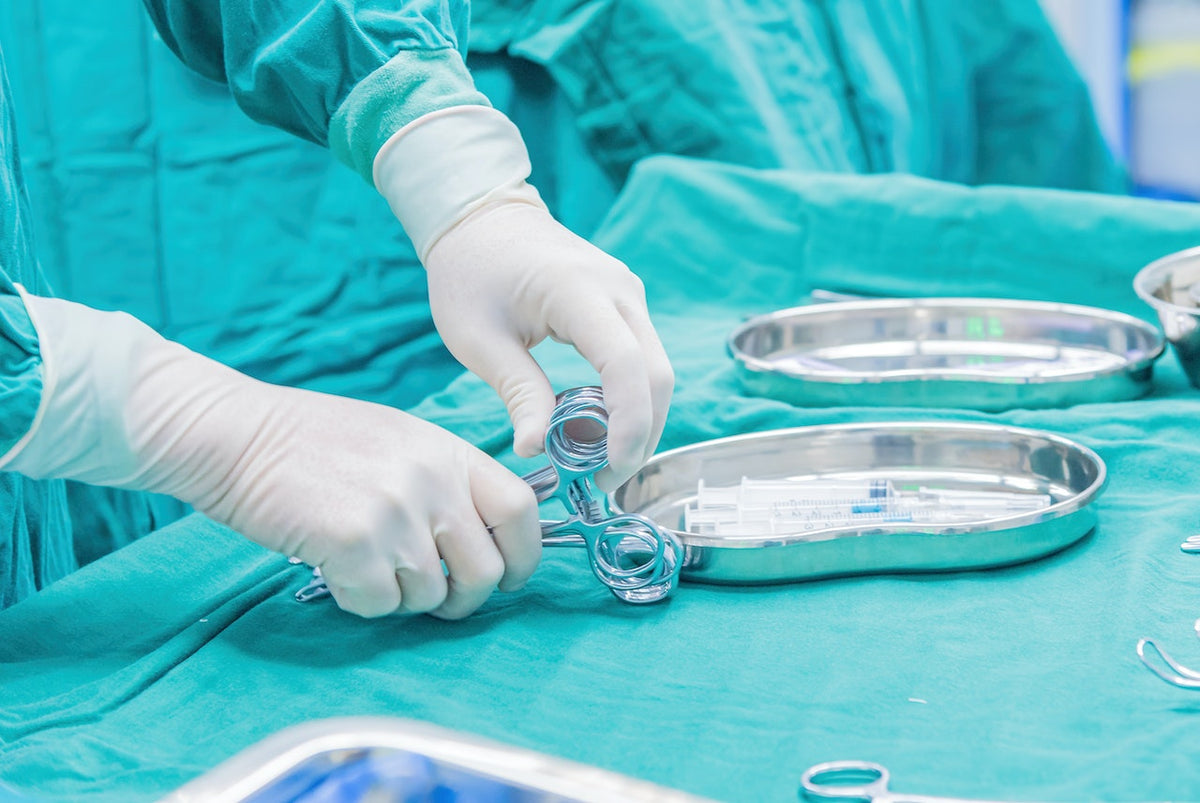
Prostate surgery or, prostatectomy, is a procedure performed on men to remove part of or the entire prostate gland. The prostate gland is found in a man’s pelvis, right below the bladder. The gland encompasses the urethra, which is what carries urine from the bladder to the penis.
A prostatectomy is generally performed when the prostate is infected with cancer. Removing part of or all of the prostate gland is necessary to stop the cancer from spreading. Unfortunately, prostate surgery is invasive and it’s common for penile nerve cells responsible for an erection to be cut or damaged, leading to erectile dysfunction (ED).
Keep reading to learn more about ED after prostate surgery and what you can do to speed up penile nerve regeneration post-op.
Radical prostatectomy is a type of surgery that involves removing part or all of the prostate gland. Radical prostatectomy is generally performed on men with prostate cancer to remove cancerous tissue. During the procedure, a surgeon will make small incisions in the lower abdomen to remove the prostate gland.
Great care is taken to avoid cutting or damaging penile nerve cells during the operation. However, penile nerve cell fibers are delicate and can’t always be spared. Despite a surgeon’s best efforts, nerve damage is common. Research shows that ED affects nearly 60% of men who undergo a radical prostatectomy 18 months after the operation, and less than 30% can have firm erections 5 years post-op.
The cavernous nerve is a penile nerve responsible for male erection. When a man is sexually aroused, the body will release neurotransmitters from the cavernous nerve terminal. The nerve cells then dilate the arteries and arterioles, which produce blood flow to the penis. When the cavernous nerve is cut or damaged during a prostatectomy, ED can occur.
Nerve cells can regrow or repair themselves after a prostatectomy, but it is a lengthy process that can take months. When you experience an injury from either trauma or surgery, your body immediately gets to work at repairing the damage. Nerve cells are no exception and will repair themselves if provided with the proper nutrients to do so.*
However, how well your nerves can repair themselves depends on the extent of the damage. In some cases, nerve cells will not regrow. So, what can you do to promote nerve regeneration and healing after prostatectomy? Below are 7 tips for speeding up nerve regeneration after prostate surgery.
Most doctors will recommend PDE5 inhibitors (Viagra, Cialis, Levitra) to increase blood flow to the penis. These drugs have a vasodilating effect that help relax muscles and promote blood flow to the penis to make an erection more possible. However, these medications may not be as effective in men who have undergone a prostatectomy.
Caverject is a medication that is injected into the penis with a syringe. It is used to produce penile erections and works in approximately 80% of men. Injection therapy may be an alternative for men who did not find success with Viagra or similar oral medications.
Penile rehabilitation exercises may help men regain more function in their penis by strengthening the pelvic and core muscles. Strengthening these areas can offer more support to the genital muscles, which can help men get and keep an erection.
Key nutrients, such as those found in NeuraZenx, are necessary for your nerve cells to repair themselves and function properly.* NeuraZenx is a dietary supplement that may help support nerve health during your prostatectomy recovery.*
Supplements are a safe way to ensure your body gets adequate levels of nutrients needed for your body to function properly.* By supporting your nerve health with key nutrients, you may be able to speed up nerve cell growth and repair.*
Linear compression therapy or, linear shock wave therapy, is a non-invasive therapy used to treat ED. The therapy uses low-intensity shock waves to induce the formation of new blood cells to promote blood flow to the penis. In clinical trials, linear compression therapy had a high success rate of 80%.
Penile traction therapy (PTT) involves wearing a penile traction device (a metal device that holds the penis in a certain position) for a period each day. PTT helps to stretch the penis, restore length, and correct deformities. PTT may help restore erectile function in men with ED.
Vibration therapy is an inexpensive treatment for ED that involves using a vibrating device to stimulate the penis. Vibration therapy is thought to help with ED through the stimulation of nerve fibers in the penis. This type of therapy is non-invasive and safe for most people.
How long it takes for your nerve cells to regenerate after a prostatectomy depends on the level of nerve damage and other factors such as age and current health. Again, some nerve damage is permanent and may never heal. In general, nerves can regenerate at a speed of roughly 1 inch a month. Erectile tissue can take up to 18 months to regenerate while the prostate gland may take years.
Prostate surgery is a traumatic yet sometimes necessary operation. Most men can expect some level of ED following their procedure. Though great care is taken to avoid damaging penile nerves, it’s sometimes unavoidable.
If you are experiencing ED post prostate surgery, there are multiple therapies, medications, and supplements that may help speed up your recovery.* Talk to your doctor about the best course of treatment for you.
*These statements have not been evaluated by the Food and Drug Administration. These products are not intended to diagnose, treat, cure or prevent any disease.